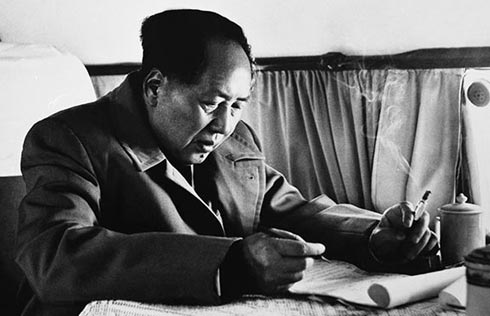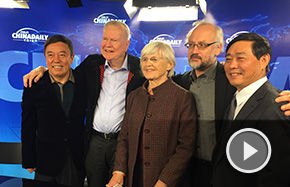Coming to a screen near you
No quick returns
The branding effect is already evident; best-selling e-books can have a positive influence on sales of the equivalent paper publication. "The digital performance of a book often provides clues to potential sales in brick and mortar stores, but it will be a long-term process, even with clear goals and a good plan of action," said Li. "No one should expect a quick financial return."
Wang Hui, chief editor of the Chinese-language version of Psychology magazine, said: "Traditional publishers enjoy the advantages of being well established and enjoy good reputations in the industry, but those factors can also prove to be shortcomings."
Like Zhonghua, Sanlian Publishing House put a new twist on a traditional industry when it opened a workshop for authors, graphic artists and, crucially, readers, in 2009.
Work and story ideas are submitted online and if the readers judge the material to have potential, the authors and artists are invited to attend the workshop and develop their ideas in collaboration with the readers. Zhang Zhijun, Sanlian's deputy head sees the workshop as a major influence on the publisher's future development.
Sanlian is no stranger to innovation. In 2003, it was the first publishing house on the Chinese mainland to publish graphic novels, such as those by the popular Taiwan-based cartoonist Jimmy.
"The open nature of the workshop offers more opportunities to get to know authors from all walks of life, people with special ideas they would like to share through our platform, " said Zhang.
Interactivity
Meanwhile, illustrated and interactive books are now assuming greater importance for publishers and the format of the workshop, equally open to creative types and their audience, means publishing in the digital world can break accepted rules. For example, some companies have given readers the opportunity to influence the course of stories published in installments by asking for, and often incorporating, their ideas on story and character development.
"Interactivity in the reading process, no matter at what stage, is winning more readers because people have become accustomed to it through computer games and related activities," said Holger Volland, deputy president of the Frankfurt Book Fair.
"As we all know, in the search for good content, uniqueness and novelty are more important than anything else," said Zhang, who decided to retain full independence of the workshop by declining all offers of financial support and cooperation from other organizations: "We have to maintain our purity; that way we can produce a lasting and sustainable future in the publishing world."
Zhonghua's Bao believes in the merits of classical Chinese literature and regards her company as being in a unique position as it acts as a cheerleader for, and repository of, ancient literature. To that end, the company is exploring the potential of promoting the classics through "fragmentation", that is, by publishing free extracts from classic works in the hope that readers will be enthralled and rush to the stores to buy a copy of the book in question.
For Sanlian, the path seems clear but also hard. Around 99 percent of the illustrated books it publishes and sells in its own bookstores are written by foreign authors.
"We lack local talent to create good material that will prove competitive," said Zhang. "It's an opportunity as well as a challenge. If we get it right, we will be starting on the road to success."
| Young writers step up |



















